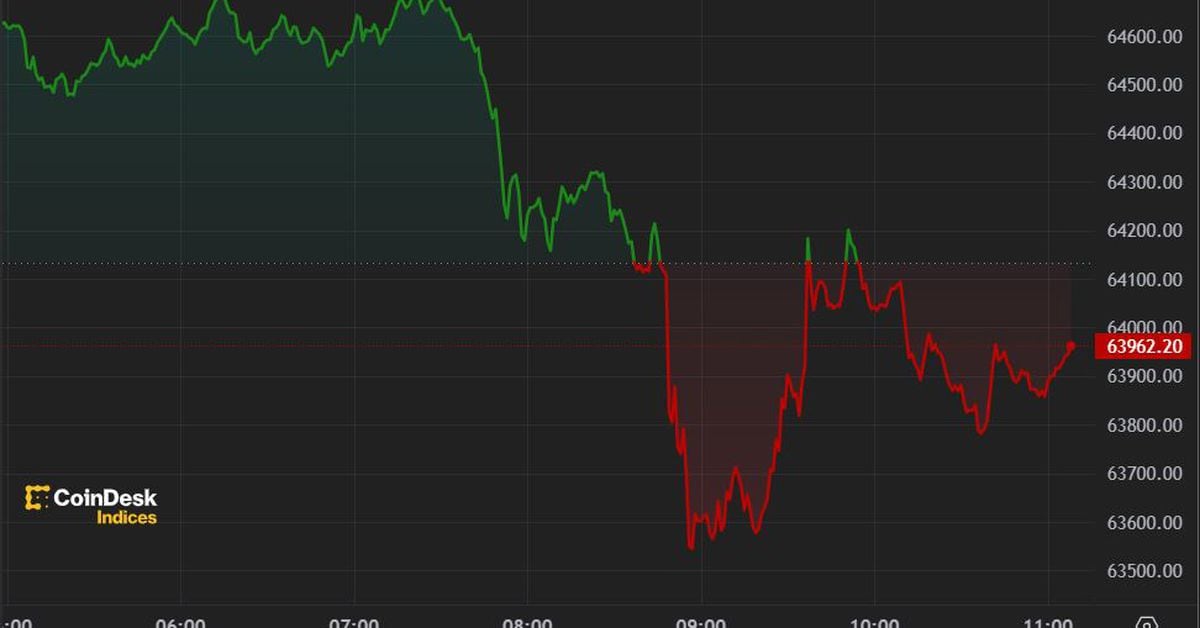This article originally appeared in First Mover, CoinDesk’s daily newsletter, putting the latest moves in crypto markets in context. Subscribe to get it in your inbox every day.
Bitcoin fell to its lowest in over a month during the European morning, slumping to $63,500. This is the first time BTC has dropped below $64,000 since mid-May. At the time of writing, the bitcoin price is around $63,900, a fall of 3.5% in the last 24 hours. The CoinDesk 20 Index (CD20), a measurement of the broader digital asset market, has dropped just under 2.3%, while ETH is down 2.25% at $3,500 and SOL has fallen almost 3.8% to $132.24.
Spot bitcoin ETFs in the U.S. recorded a fifth straight day of outflows on Thursday, taking their total losses for the week to $900 million, the highest outflow activity since late April. Data tracked by SoSoValue shows that the 11 listed ETFs lost $140 million on Thursday, with $1.1 billion in trading volumes. Grayscale’s GBTC – which has mostly seen outflows since its conversion to an ETF in January – led with $53 million followed by Fidelity’s FBTC at $51 million. BlackRock’s IBIT, the biggest ETF by assets held, was the only product with net inflows, adding $1 million. The others saw zero net change.
Standard Chartered is establishing a spot trading desk for bitcoin and ether, Bloomberg reported on Friday. The London-based desk will start operations soon and be part of the bank’s FX trading unit, the report said, citing people familiar with the matter. Standard Chartered would become one of the first global banks to enter spot cryptocurrency trading, though others, such as Goldman Sachs, have been trading crypto derivatives for several years. Standard Chartered’s involvement in cryptocurrency is now well established, as a backer of digital asset custodian Zodia Custody and its exchange arm Zodia Markets.
The chart shows the U.S. and other developed and major emerging economies are still in a late expansion stage of the business cycle and not yet in recession.
Hence, some analysts foresee another leg higher in bitcoin before the business cycle rolls over into recession, causing widespread risk aversion.
Source: Fidelity
– Omkar Godbole

![[Action required] Your RSS.app Trial has Expired.](https://8v.com/info/wp-content/uploads/2026/01/rss-app-cfAqZL-75x75.png)









![[Action required] Your RSS.app Trial has Expired.](https://8v.com/info/wp-content/uploads/2026/01/rss-app-cfAqZL-350x250.png)









